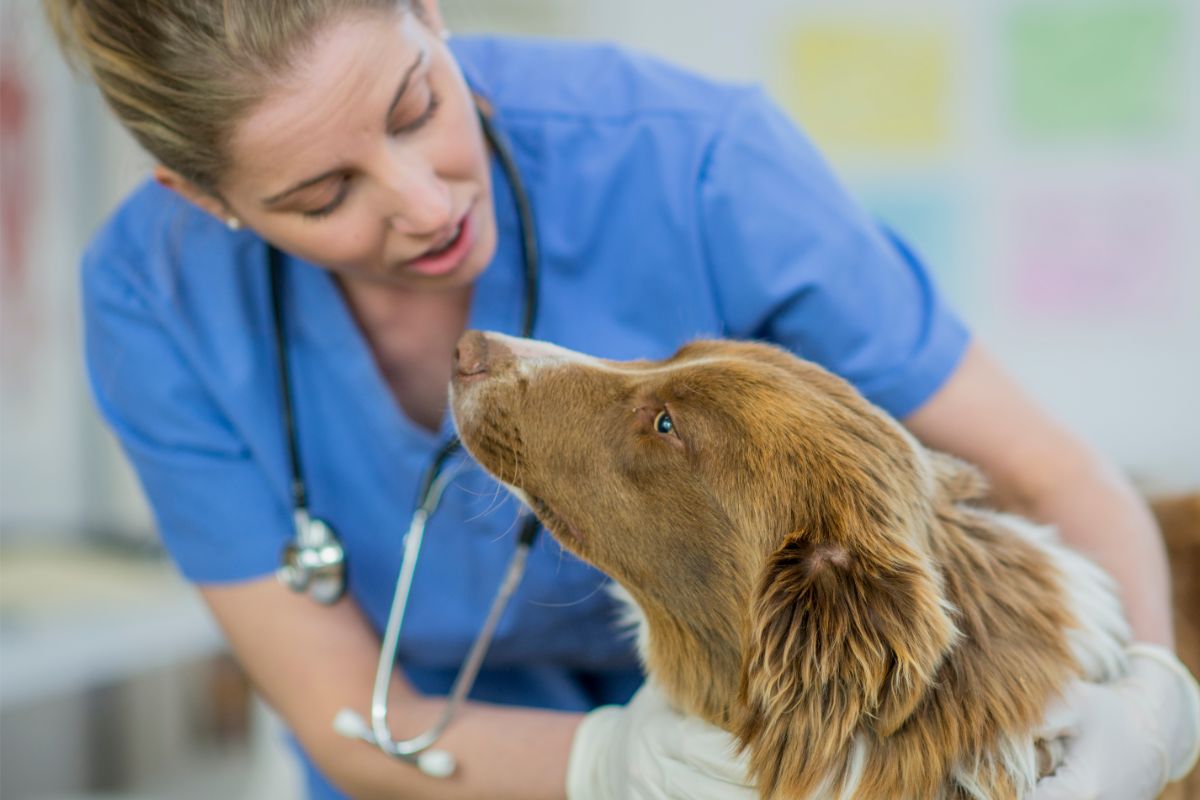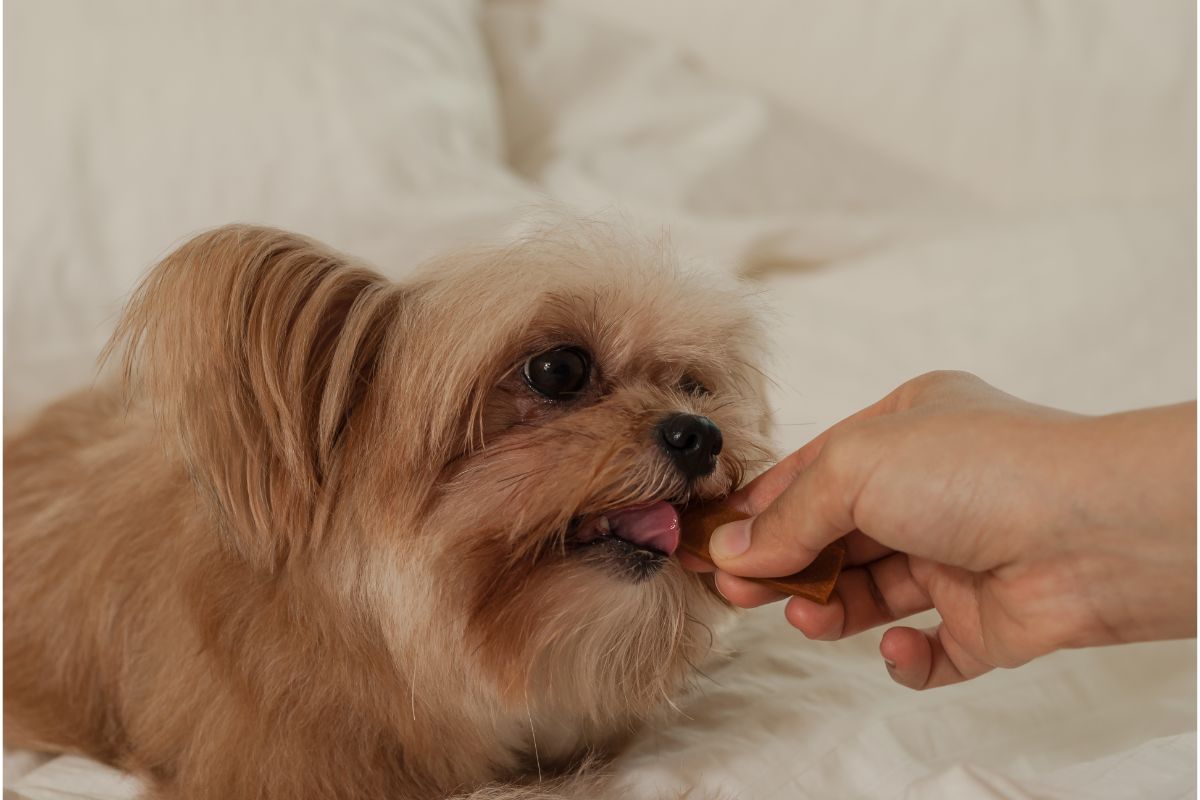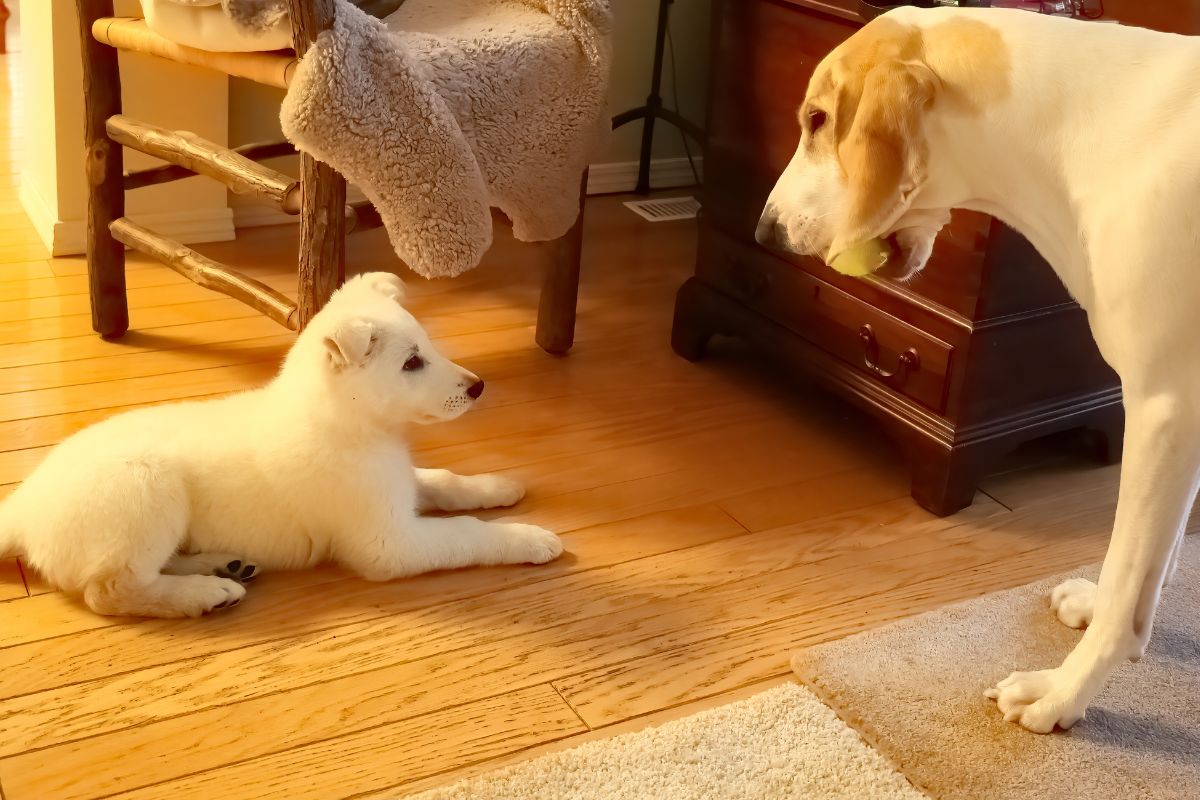Dogs are one of the most obedient animals on earth (some would say more than humans), but they may not always do what you want or even take any notice of you.
Most of us have experienced giving a dog a command only to be completely ignored. Not only can this be frustrating, but it can also be quite upsetting for pet owners.

The good news is that this is very common between dogs and their loving owners. Dogs, like humans, have their own unique personalities and preferences.
Sometimes, their apparent disinterest may simply stem from a lack of motivation or confusion about what you expect from them. Other times, it could be linked to their breed traits or past experiences.
Finding out can be a challenge, but there is nearly always a reason behind your dog seeming to not know you’re even there.
You may be surprised to learn that it may stem down to the fact that the dog owner has trained their pet into doing so unwittingly. When it comes to dogs, behavior that comes with a reward tends to get repeated.
To get to the bottom of this mystery, we are going to dive head-first into the fascinating world of canine behavior to uncover the possible reasons behind your dog’s apparent indifference.
By understanding these factors, you’ll gain valuable insights that can hopefully help strengthen your bond and improve communication with your four-legged companion.
Depression
There are a number of reasons why your dog may be ignoring you. More often than not, the cause can be found by examining the accompanying signs and situations.
The good news is that most of the time, a dog ignores its owners because of a failing condition response. However, it can also be because of a behavioral issue that can be trained out of them, or, in rarer more serious cases, an underlying health concern.
One possible reason is that your dog is depressed. There are various factors that can contribute to your dog experiencing a state of depression, ranging from medical conditions to situational changes.
If your dog starts to ignore you and shows disinterest in daily routines or playtime, eats less, sleeps excessively, and hides away, it’s crucial to investigate the potential causes of this behavior.
It becomes even more important to do so if there haven’t been any recent situational changes, like moving to a new house or alterations in the family dynamic.
Depression in dogs can also be linked to serious illnesses such as cancer, kidney failure, or diabetes, which can affect their mental well-being.
Alongside your dog’s lack of enthusiasm towards you, other signs and symptoms might accompany this behavior, such as fever, defecating or urinating unusually, or vomiting.
Identifying the underlying reasons for your dog’s depression is vital for their overall health and happiness.
By recognizing and addressing any medical or situational factors contributing to their emotional state, you can take appropriate steps to provide the necessary care, support, and treatment to help your furry friend recover their zest for life.
Inadequate Training
Hopefully, any medical causes have been ruled out. However, if your dog is still ignoring you, it is possible that your furry companion needs proper training.
The effectiveness of early training and the methods employed play a crucial role in ensuring your dog’s responsiveness to commands and minimizing the chances of them ignoring you.
One popular training technique is treat training, where you provide a treat within three seconds of your dog successfully executing a command.
This approach helps your dog establish the correct association between the command and the reward, reinforcing their obedience and reducing instances of ignoring you.
This takes time and is best practiced when the dog is young, but, despite commonly held beliefs, you can still teach an old dog new tricks!
Poor Track Record Of Punishments
Sometimes dogs engage in undesirable behaviors like rummaging through the trash or darting out the door the moment they get the chance.
It’s crucial to understand that your dog’s response to your recall command may be influenced by the way you’ve handled previous instances of misbehavior.
If your dog has come to associate the recall command with being scolded or subjected to negative consequences, they are more likely to ignore your command in the future.
Avoiding any association of punishment or negative outcomes with the recall command is vital for ensuring your dog’s responsiveness and cooperation.
A Ruptured Eardrum
If you notice sudden changes in your dog’s behavior, such as ignoring you, or they appear to be unsteady and are easily startled, it could be a sign of a ruptured eardrum.
The eardrum, a delicate membrane separating the middle ear from the inner ear, can become perforated, leading to hearing loss. In such cases, your dog is not purposefully ignoring you; rather, they are unable to hear your commands.
Other symptoms may accompany a ruptured eardrum, such as ear rubbing, head tilting, ear discharge, and signs of pain.
Several factors can contribute to a ruptured eardrum, including head or ear trauma, something lodged in the ear, ear infections, changes in atmospheric pressure, or exposure to extremely loud noises.
If you suspect a ruptured eardrum, it’s important to seek veterinary care to diagnose and treat the condition promptly.
Uninterested In Treats
Yes, it can be hard to believe, but sometimes, dogs just get fed up with the same old treats. If your dog seems uninterested when you try to give them treats, it’s essential to find motivating alternatives.
Food can play a significant role in training, as it can create positive associations and help your dog feel calmer and happier, even in stressful situations.
Using highly enticing and aromatic treats will ensure that your dog doesn’t ignore you during training sessions. While you don’t want to solely rely on treats, offering regular rewards will help keep your dog motivated and engaged.
When choosing treats for training, opt for options that are affordable, healthy, and easily accessible. For example, scrambled eggs can be a great choice as they are nutritious and enticing.
If you prefer something more portable, we recommend dehydrating your own chicken jerky. Even moistening your dog’s regular kibble with a few drops of bacon drippings can capture their attention without causing unwanted weight gain.
Remember, finding the right treats that excite your dog can make a significant difference in their willingness to pay attention and participate actively in training sessions.
What To Do When Your Dog Is Ignoring You
Firstly, you need to understand that dogs and humans communicate in completely different ways. Humans love to talk, some more than others! But, chances are, your pooch may think you talk too much.
While friends and family may be attentive to your words, dogs have their own unique way of communication that doesn’t involve verbal language.
Instead, they rely on visual cues such as body posture, eye contact, tail position, and ear movements. When dogs try to understand our intentions, their instinct is to observe us rather than listen to our words.
To them, our continuous chatter can often be perceived as mere noise, lacking the meaningful information we wish to convey to them.
So, remember that your dog prefers visual cues over verbal commands to comprehend what you want from them.
If you’ve noticed your dog is ignoring you more and more, you need to think about the surrounding environment and any accompanying symptoms. This can assist you in determining whether the behavior is rooted in a medical or situational condition.
For example, if your dog gets excited and escapes its leash upon spotting an animal, like a squirrel, it’s understandable that they may not respond to your recall command at that moment.
However, if your dog appears confused or startled when seeing you, it could indicate a potential hearing loss. If so, this requires immediate medical attention.
By carefully observing the environment and considering associated symptoms, you can make an informed decision about the appropriate course of action for addressing your dog’s behavior.
Here’s a helpful guideline to follow – if you find yourself repeating a command to your dog three times, and he fails to comply two out of those three times, it’s time to stop repeating the command.
Training occurs during every interaction with our dogs, whether we’re aware of it or not. If we continue calling our dog or giving commands like “get off the chair” without any response, we are actively training them to ignore us. In dog training, it’s essential to make our words count.
If you suspect that your dog is ignoring you due to conditioning issues, such as insufficient training or inappropriate punishments, it is important to address and correct the behavior through positive training methods.
Introducing a new command word is often easier than attempting to change a word that has been negatively associated with previous experiences.
During training sessions, always remember to provide praise and positive energy, as this helps your dog associate your commands with joy and positivity.
By starting to use positive reinforcement techniques, you can effectively retrain your dog and build a strong bond built on trust and encouragement.

How To Prevent Your Dog From Ignoring You
The best way to stop your dog from ignoring you is to prevent it from happening in the first place. Of course, this isn’t always possible, but there are some steps you can take.
Older Dogs
As dogs get older, there is a possibility that they will develop diseases like diabetes, which can result in them ignoring you or even experiencing feelings of depression.
Although certain age-related illnesses are unavoidable, you can enhance your dog’s quality of life by ensuring they always follow a healthy, regular diet, have access to clean water, and receive enough exercise.
Regular visits to the veterinarian are also crucial in maintaining your dog’s health, as they can detect early warning signs and make necessary lifestyle adjustments to help prevent illnesses. It’s important to note that any form of illness can cause your dog to become distant or ignore you.
By prioritizing your dog’s well-being and taking proactive measures, you can promote a healthier and happier life for your aging companion.
At Home
Maintaining a safe and clean home environment plays a crucial role in preventing various medical conditions that may cause your dog to ignore you.
Dust and allergens, both indoors and outdoors, can trigger allergies, potentially leading to ear infections, which, as discussed above, can be the cause of your dog’s unawareness of you.
Additionally, some dogs may struggle with cleaning their own ears effectively. To help prevent possible ear infections that could result in a ruptured eardrum, you can assist your dog in cleaning their ears.
Make sure to use a cleaning agent specifically formulated for your pet’s ears, and seek advice and recommendations from your veterinarian or groomer for the best practices.
By taking proactive measures to maintain cleanliness and address potential ear issues, you can help your dog’s overall well-being and minimize the chances of them ignoring you.
Training
Back to training! Remember, establishing command-based obedience in your dog requires proper training and avoiding any negative associations with the recall command. It’s crucial never to use negativity or punishment when your dog breaks a rule or when you need them by your side.
Often, the behavior you wish to address may have happened in the past. Therefore, this can make a negative association ineffective and unhelpful for your dog’s learning. Instead, focus on positive reinforcement and reward-based training methods.
By avoiding negative associations and emphasizing positive ones, you can create a better and more trusting relationship with your dog, leading to improved obedience and responsiveness to your commands. In other words, they may stop ignoring you!
Is Ignoring A Common Behavior In All Dog Breeds?
Dogs of all breeds and individual personalities may show varying degrees of attentiveness.
Some breeds may have stronger instincts or tendencies to focus on certain stimuli, while others may be naturally more attentive to their owners.
In Summary
If your dog is ignoring you, don’t take it personally. They don’t think like humans, and it’s usually got nothing to do with whether they like you or not!
Keep an eye on their behavior and if anything seems out of the ordinary, consult with a veterinarian for further information and guidance.
- How To Teach Your Puppy Their Name Easily! - July 18, 2023
- Is Your Puppy Counter Surfing? Find Out How To Stop It! - July 18, 2023
- How To Train Your Puppy For Car Rides: Everything You Need To Know - July 18, 2023










